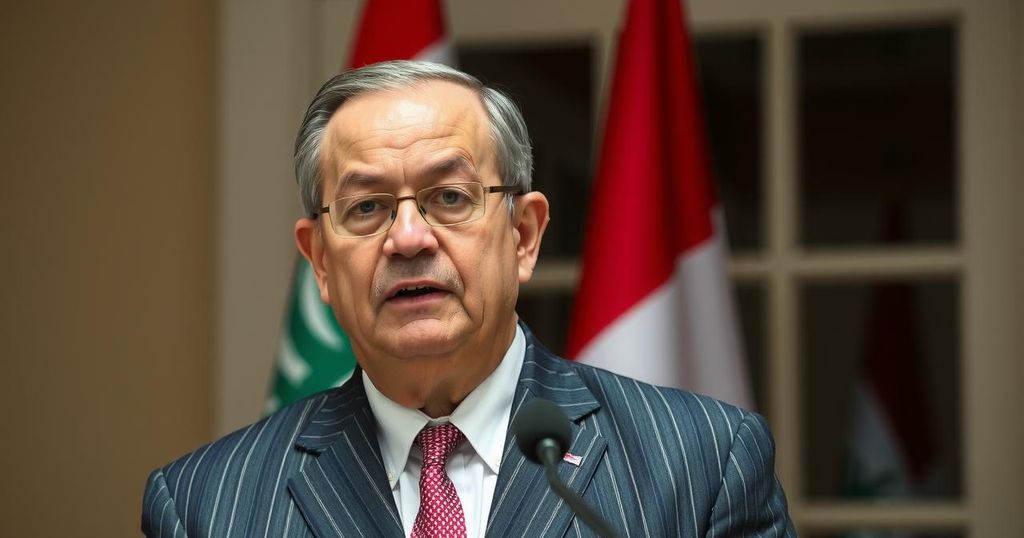Lebanon has elected Army Commander Joseph Aoun as president, signaling a shift from Iranian influence to a U.S.-backed leadership. His election ends a two-year power vacuum, with more than two-thirds of lawmakers supporting him for a six-year term.
In a significant political development, Lebanon’s lawmakers have elected Army Commander Joseph Aoun as the nation’s new president, marking the first presidency in over two years. This decision, backed by the United States, suggests a notable shift in the power dynamics of the region, indicating a decrease in Iranian influence. With more than two-thirds of the politicians supporting Aoun, his election effectively resolves a long-standing power vacuum and paves the way for a six-year mandate.
Lebanon has been grappling with political instability for years, resulting in an extended absence of presidential leadership. The inability to elect a president has led to a significant governance gap. Joseph Aoun’s election is pivotal not only because of its timing but also due to the strategic backing from the United States, which contrasts sharply with the historically stronger influence of Iran in Lebanese affairs. This shift reflects broader regional geopolitical changes.
In conclusion, the election of Joseph Aoun as president symbolizes not just an end to a protracted political stalemate in Lebanon but also represents a broader geopolitical shift away from Iranian dominance towards a more U.S.-aligned political framework. This development may have lasting implications for Lebanon’s governance and its relationships within the region.
Original Source: www.poncacitynews.com







